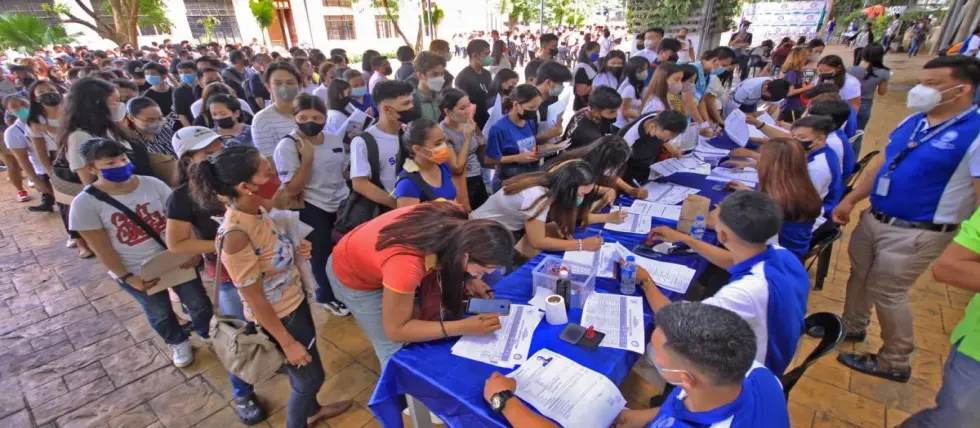Philippine Gaming Operators Assert 50,000 Jobs at Risk over Potential iGaming Ban
Online gaming operators in the Philippines have raised concerns that a complete ban on iGaming could lead to the loss of more than 50,000 jobs. According to reports published by the Philippine Star, the industry has warned that such a move would not only impact employment but could also lead to a rise in illegal gambling operations.

The online gambling sector in the Philippines has experienced significant growth in recent years. This dates back to the introduction of regulatory measures by the Philippine Amusement and Gaming Corporation (PAGCOR) during the COVID-19 pandemic.
Data referenced in the report indicates that the country's legal online gaming, or eGames, industry supports over 50,000 direct and indirect jobs. These positions span various roles, including IT services, customer support, compliance, game development, and marketing.
Related: Threat of Philippine iGaming Ban Has Operators Pushing BackThe sector's expansion has been driven by a more accessible licensing framework and reduced operating fees, making it easier for legitimate businesses to enter and thrive in the regulated market.
PAGCOR reported a total revenue of PHP28.1 billion (US$504 million) in the first quarter of 2025, an increase of 11.2% compared to the same period in the previous year. Of this total, PHP25.5 billion (US$457 million) was generated from gaming operations alone. The eGames and eBingo segments accounted for 56% of this figure, generating PHP 14.32 billion (US$257 million), further underscoring the financial contribution of the online gaming sector to the national economy.
In a recently published paper addressing the potential impacts of a total iGaming ban, Tonet Quiogue, CEO of Arden Consult, emphasized that unregulated gambling remains the primary threat, not licensed operators. The paper stressed that legal platforms in the Philippines already adhere to international standards by implementing strong know-your-customer protocols, age verification systems, self-exclusion mechanisms, and real-time monitoring tools.
Eliminating these platforms, the paper warned, would likely result in the growth of black-market alternatives that lack regulatory oversight and consumer protections.
More Regulation News
Philippine Citizens at Odds over iGaming Ban
The debate over online gambling has intensified following a legislative proposal by Senator Sherwin Gatchalian. The bill calls for tighter regulatory measures, including enhanced know-your-customer rules, stricter control over gambling advertisements, a PHP 10,000 (US$177) minimum top-up requirement, and prohibitions on digital payment services such as GCash and Maya from being used on gambling platforms.
The proposal has sparked broader discussions among lawmakers, with some now advocating for an outright nationwide ban on all forms of online gaming.
Philippine President Ferdinand Marcos Jr. has also weighed in on the issue, expressing concern over the negative impact of irresponsible online gambling on Filipino families. In a recent social media address, he pointed to the harm caused by digital gaming platforms, while acknowledging the broader benefits of digitalization in areas like healthcare, education and government services. He noted, however, that the same digital infrastructure is being misused for online scams, misinformation, and gambling-related problems.
The country's leader may have to win over the people if he wants to seek an iGaming ban. A recent survey conducted by sociocultural research firm The Fourth Wall found that safety and legitimacy are top concerns for Filipino online gamblers..
The study surveyed over 1,000 active users from major urban areas and other key growth centers around the country. A majority of respondents had shifted from informal street gambling or unregulated digital platforms, with only 7% identifying as land-based casino patrons. The findings suggest a preference among players for legal and regulated online gaming environments, with clear safeguards in place to protect against fraud and exploitation.
The study revealed that 53% of those surveyed oppose a ban on regulated online gambling, while 18% support such a measure. Another 16% expressed conditional support.
Notably, 75% of respondents stated that a prohibition would not eliminate online gambling but would instead push activity toward illegal sites and unregulated foreign platforms. These responses indicate that many Filipinos believe effective regulation, rather than prohibition, is the key to addressing the risks associated with online gaming.
RELATED TOPICS: Regulation
Most Read
BETBY Launches Always-On Virtual American Football and Expanded Bet Builder Markets
Feb 04, 2026Must Read
 Interviews
Interviews
Exclusive Interview: Levon Nikoghosyan Shares AffPapa Winning Formula for Successful iGaming Events
Dec 03, 2025 Interviews
Interviews








Review this New Post
Leave a Comment
User Comments
Comments for Philippine Gaming Operators Assert 50,000 Jobs at Risk over Potential iGaming Ban